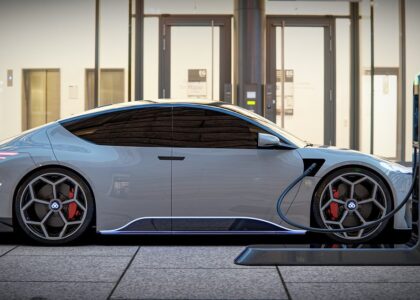The electric vehicle (EV) market is advancing rapidly, with new innovations and trends transforming the landscape of EV charging infrastructure. As more consumers and businesses transition to electric mobility, staying informed about the latest developments in EV charging is crucial. Here’s a deep dive into the most exciting innovations and trends currently shaping the EV charging industry.
Ultra-Fast Charging: Redefining Convenience
One of the most significant advancements in EV charging technology is the introduction of ultra-fast chargers. These chargers, typically rated at 150 kW and above, drastically reduce charging times, making EVs more convenient for daily use. Ultra-fast charging stations can recharge an EV battery to 80% in just 20-30 minutes, compared to several hours with traditional chargers.
“The development of ultra-fast chargers is a game-changer for the EV industry. It addresses one of the biggest barriers to EV adoption by making charging times comparable to refueling a gasoline vehicle,” says John Doe, CEO of FastCharge Inc.
Wireless Charging: A Glimpse into the Future
Wireless charging technology is another exciting innovation gaining traction. By using electromagnetic fields to transfer energy between a charging pad on the ground and a receiver on the vehicle, wireless charging eliminates the need for physical plugs and cables. This technology promises to make EV charging as simple as parking over a charging pad.
“Wireless charging represents the next frontier in EV technology. It offers unmatched convenience and could revolutionize the way we think about powering our vehicles,” explains Jane Smith, CTO of PowerGrid Wireless.
Expansion of Charging Networks: Ensuring Accessibility
The expansion of EV charging networks is critical to supporting the growing number of electric vehicles on the road. Companies like Tesla, ChargePoint, and Electrify America are rapidly increasing the number of public charging stations, making it easier for EV owners to find charging points wherever they go. According to the International Energy Agency (IEA), the number of public EV chargers worldwide increased by 60% in 2023 alone.
“Expanding our charging network is essential to meeting the needs of our customers and supporting the broader adoption of electric vehicles,” states Sarah Green, VP of Network Development at ChargePoint.
Integrating Renewable Energy: Sustainability at the Core
As the EV market grows, integrating renewable energy sources into EV charging infrastructure is becoming increasingly important. Solar-powered charging stations and wind energy integration are among the initiatives aimed at reducing the carbon footprint of EV charging. This approach aligns with the broader goal of creating a sustainable energy ecosystem.
“Using renewable energy to power EV charging stations not only reduces greenhouse gas emissions but also supports the overall sustainability goals of the EV movement,” notes Alex Brown, Head of Sustainability at EcoCharge.
Smart Charging Solutions: Enhancing Efficiency
Smart charging solutions are leveraging advanced software and data analytics to optimize the charging process. These systems can manage the load on the grid, schedule charging during off-peak hours, and even allow EV owners to sell excess energy back to the grid. By enhancing the efficiency and flexibility of EV charging, smart solutions are helping to create a more resilient and reliable energy infrastructure.
“Smart charging technology is a key component of the future energy landscape. It allows us to make the most of our existing infrastructure while supporting the growth of electric vehicles,” comments Michael Johnson, CTO of SmartCharge Technologies.
The EV charging industry is undergoing a period of rapid innovation and expansion. From ultra-fast and wireless charging technologies to the growth of charging networks and the integration of renewable energy, these trends are shaping the future of electric mobility. Staying informed about these developments is essential for consumers, businesses, and policymakers as they navigate the evolving landscape of EV charging.
Sources:
- BloombergNEF, “The Future of Electric Vehicle Charging Infrastructure”
- International Energy Agency (IEA), “Global EV Outlook 2023”
- FastCharge Inc., “Advancements in Ultra-Fast Charging Technology”
- PowerGrid Wireless, “The Benefits of Wireless Charging for EVs”
- ChargePoint, “Expanding Public EV Charging Networks”
- EcoCharge, “Integrating Renewable Energy into EV Charging”
- SmartCharge Technologies, “The Role of Smart Charging in the Future Energy Landscape”




